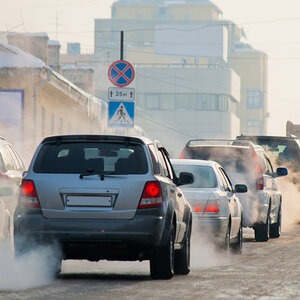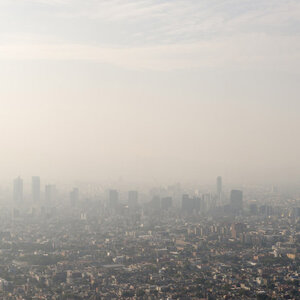Aid for clean air growing but still dwarfed by fossil fuel subsidies

International development funding for clean air projects has, for the first time, exceeded aid-related funding for fossil fuel projects, a report from the Clean Air Fund finds.
The report, The State of Global Air Quality Funding 2023 (77 pages, PDF), found that in 2021, an estimated $2.3 billion was spent on reducing outdoor air pollution in low- and middle-income countries, compared with $1.5 billion on fossil fuel projects such as oil and gas extraction and production. Aid-related funding for fossil fuel projects has declined year-over-year since it peaked at $11.9 billion in 2019. Investments in clean air are viewed as essential to efforts to mitigate climate change, reduce global health burdens, and boost environmentally friendly economic growth.
The study found considerable regional differences in funding, with 86 percent of international development funding for outdoor air quality between 2017 and 2021 concentrated in five Asian countries: China (7 percent), the Philippines (20 percent), Bangladesh (17 percent), Mongolia (6 percent), and Pakistan (6 percent). Meanwhile, all of Africa received just 5 percent of funding, despite having five of the top 10 countries with the highest levels of air pollution in the world.
Despite the growth in clean air funding, the analysis showed that between 2015 and 2021, only 1 percent ($17.3 billion) of international development funding and only 2 percent ($11.6 billion) of international public climate finance went toward investments in clean air. Moreover, the small success in cutting development assistance for fossil fuels remains overshadowed by government subsidies for domestic oil, gas, and coal use and production, which amounted to $7 trillion in 2022, according to an International Monetary Fund study highlighted in the report.
“Because air pollution particularly harms the health and development of children, especially in low- and middle-income countries, action for clean air must be central to our commitments to future generations,” said Helen Clark, former prime minister of New Zealand and former head of the United Nations Development Programme. “It’s time for policy makers and funders to raise their ambitions.”
(Photo credit: Getty Images/guvendemir)







